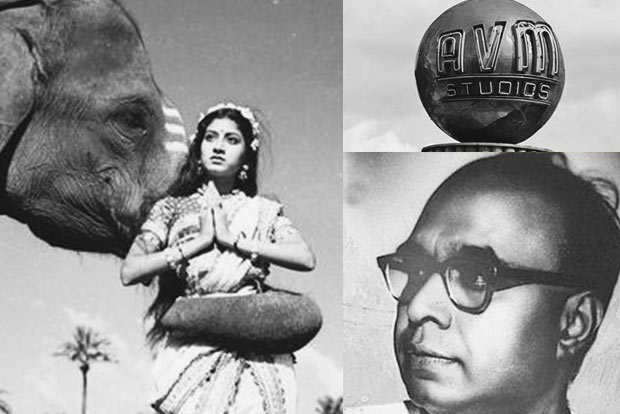Those were the days: When AVM was much ahead of his time
AVM was one of the pioneers in introducing playback singing in Tamil cinema. The move opened doors to many actors who lost opportunities as they could not sing.;
By : migrator
Update:2018-02-04 00:28 IST

Chennai
Every time the heroine sang, it sounded like the screech of a barn owl. With Rukmini playing Valli — the gypsy girl, frequently breaking into a song, the eardrums of the audience were being trampled in regular intervals. Those with lesser tolerance clattered out of the talkie theatre.
The 1945 film — Sri Valli, a popular story on the romance of lord Muruga had been shot by various producers successfully from the days of silent movies. This hard-working AVM team (then called Pragrati studios) may have delivered the first film with this tale flopping. All the resources lavished when there was wartime rationing going waste. The heroine Rukmini was a beautiful girl. (Her mother, Nungambakkam Janaki was an actress too. And incidentally, her daughter Lakshmi and grand daughter Aishwarya followed in her footsteps).
More importantly, she was brave enough to be held aloft by an elephant with its trunk — a scene the mythological script called for. (The hero and heroine spent a month getting familiar with the elephant tied in the studio grounds in Mandaveli). But then, she also had to sing a dozen songs in the movie and that was like asking too much from her clearly ill-equipped vocal cords.
The scenes where the gypsy girl is wooed by Muruga were shot in the only forest in Madras — the Adyar side Theosophical Society. The world famous banyan tree was not missed either. (A few years before Tagore had wanted to start his Shantiniketan under this tree. And half a century had passed since the men, who in a couple of years, formed the Indian National Congress met under the tree).
Visiting representatives sensing the strong undercurrent in the theatres raised the red alarm with the producer. There are a few things in the world that can compete in speed with the word-of-mouth from the audience and that could kill a movie within days of its uncanning. But AVM was not one who left a challenge uncontested. He had started his career in his father’s grocery shop (that also sold gramophone records) in Karaikudi. The records drew him into movie production. Taking up the supposedly haunted palace of Vizianagaram, where the king walked off to his death off a balcony after successfully defending an insanity charge laid by the queen, he had made a top comedy film Sabapathy.
Now, Meyyappan was oppressed by the irony of creations — pretty girls could not sing! Egged on by his representatives AVM brooded. A couple of years back, he had made a bold gamble. When a movie titled Harichandra was made by him in Kannada, his audiographer experimented with one reel and substituted the Kannada words with carefully written matching words in Tamil. He speculated on the possibility of a repeat though the movie was already in the theatres, but it gave him fleeting sense of hope.
The technology would be of use, never more so than now. He had the much talented singer Periyanayagi brought to his audio recording rooms. The studio became earnest and animated as the songs were recorded overnight. AVM technicians worked round the clock to synchronize voice and lip.
Reels with Rukmini singing were brought back and new ones replaced. The songs were substituted in the recalled reels and rushed by cars and trains to the theatres. The crowds were happy.
AVM had done something no producer would dare to do after the release of a film and was rewarded at the box office once more. Peri yanayagi was one of the first Tamil playback singers who made a great career for herself. The era of singers who sang and actors who acted had come in Tamil cinema. Also, actors need not sing any longer. The significant aspect was that, at that point, many good actors were waiting in the sidelines doing bit roles just because they could not sing, but had the wide gates of Tamil cinema opening up to them.
The heroes who made it big in the subsequent years were all playback singers. Later, many of them plunged into politics and changed the course of history in the state. The legendary leader MGR was one among them.
—The writer is a historian and an author
Visit news.dtnext.in to explore our interactive epaper!
Download the DT Next app for more exciting features!
Click here for iOS
Click here for Android

